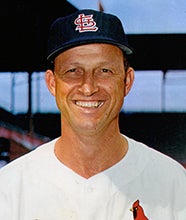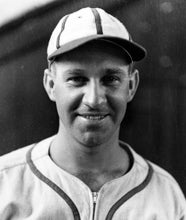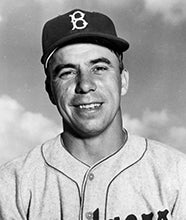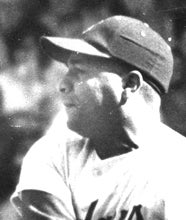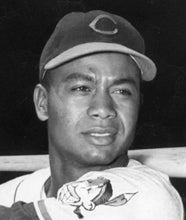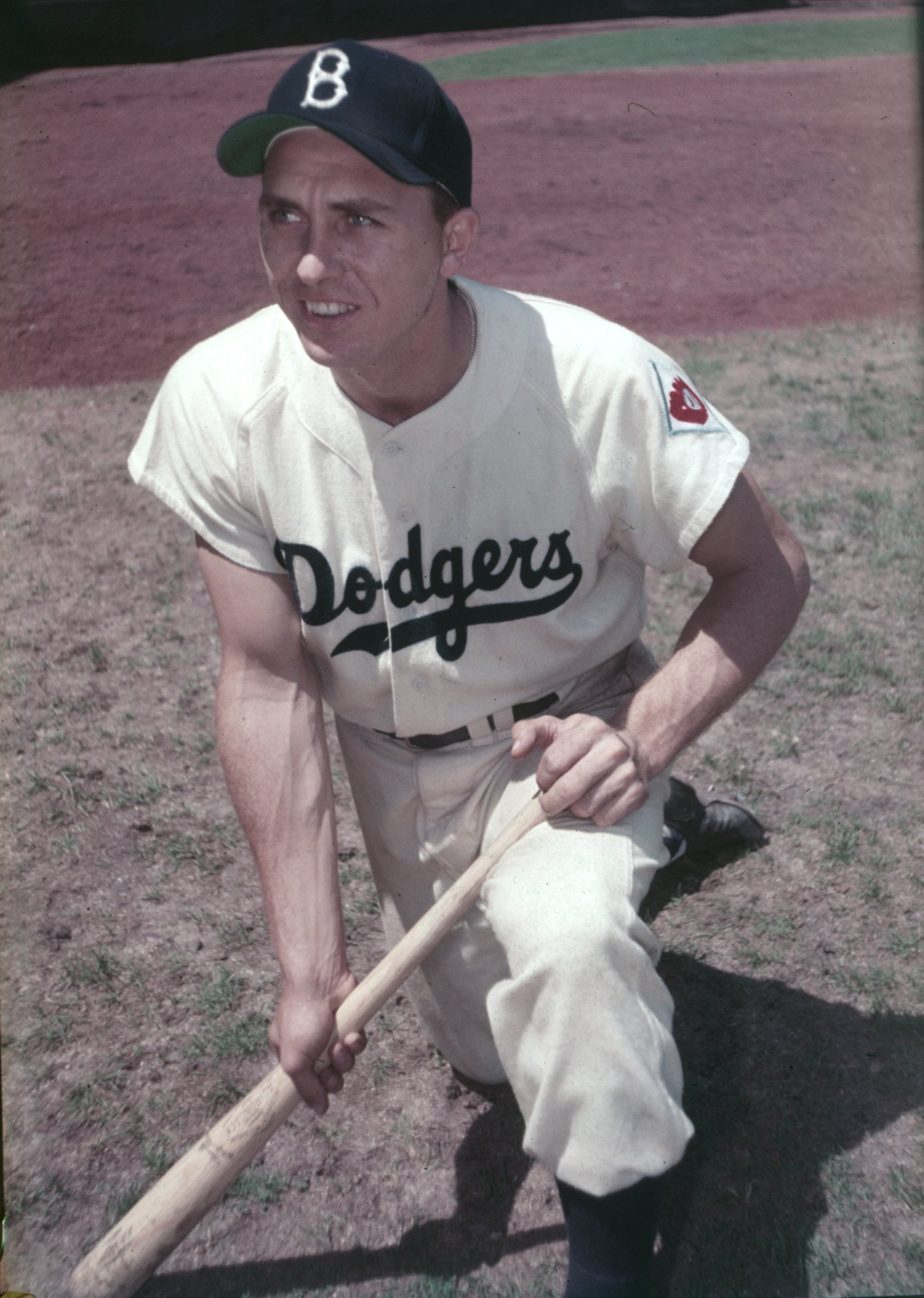- Home
- Our Stories
- Seventy-five years later, Robinson remains most valuable
Seventy-five years later, Robinson remains most valuable
On Nov. 18, 1949, neighborhood children gathered at the Robinson home in Queens to celebrate Jackie Robinson Jr.’s third birthday. For Jackie Sr., the party highlighted an offseason full of commitments: Teaching athletics at the Harlem YMCA, selling appliances, co-hosting a sports radio show and appearing in a movie about his life – where he played himself – to name a few.
But the Robinsons had more than one reason to celebrate, as Jackie Sr. had just been named the National League’s Most Valuable Player. The 1949 NL batting champion, whose league-leading 37 stolen bases complemented a .342 clip, had earned 12 of 24 first-place votes to beat out the Cardinals’ Stan Musial and Enos Slaughter.
“This award comes as a great surprise,” Rachel Robinson, pregnant with their second child, Sharon, told New York Daily News, “but we had this party planned for little Jackie for a long time, so we’ll just have to do our celebrating as a secondary feature of the birthday party.”
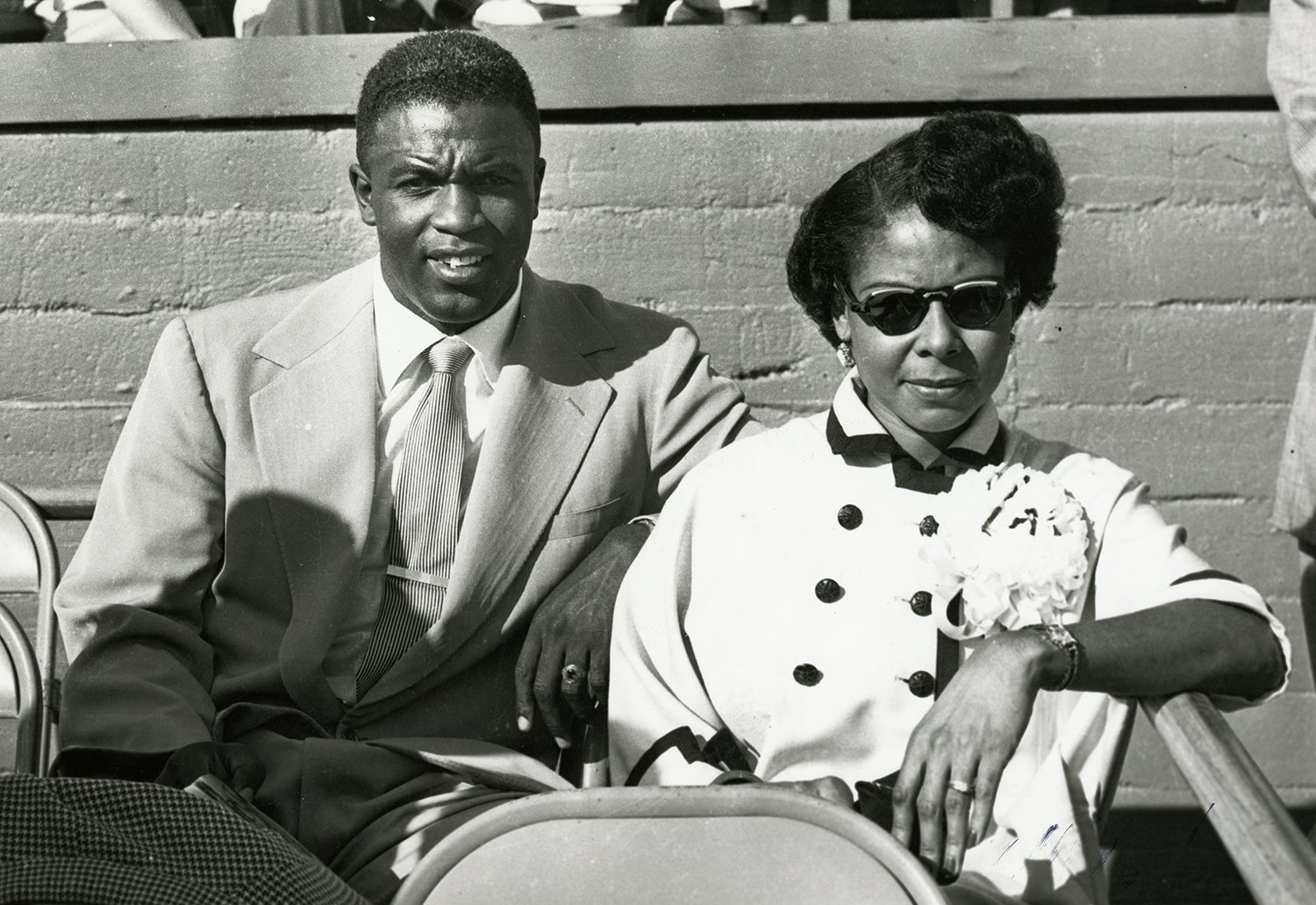
As 1978 BBWAA Career Excellence Award winner Dick Young of the Daily News put it: “The National League’s best pitchers couldn’t keep Jackie Robinson off base, the best catchers couldn’t keep him from running wild and the best batters couldn’t catch him for the hitting title… but a three-year-old finally managed to overshadow the Dodgers’ star second sacker.”
Robinson dazzled throughout his MVP campaign and Opening Day was no exception. Ebbets Field hosted 34,530 — a home opener record at the Brooklyn park — on April 19 as the Dodgers faced the Giants. Hitting cleanup, Robinson went 3-for-5 with a home run.
An early slump had Robinson hitting .188 at the end of April, but his uncharacteristic struggles wouldn’t last — three weeks later, the second baseman was back up to .298 and about to post one of the best performances of his career. The May 21 game at St. Louis’ Sportsman’s Park offered an early look at the MVP race. Musial singled and scored a run. Slaughter went 2-for-4 with a double and two RBI. But Robinson shined brightest, going 3-for-5 with a stolen base, two doubles, three runs and a career-high six RBI, aiding an eight-run ninth inning in Brooklyn’s 15-6 win.
“Pee Wee’s homer was the big blow, but the performance of the afternoon was turned in by Jackie Robinson,” Young wrote in the Daily News. “There’s a name that belongs right up on top, in capital letters, when nominations for this year’s All-Star Game open.
“Robby was a hitting, fielding and running fool throughout the scrap — doing most of his magnificent work when every marker meant something. He batted in six runs, saved two more that would have put the Red Birds ahead in the sixth, and set up another with his ever-daring legwork.”
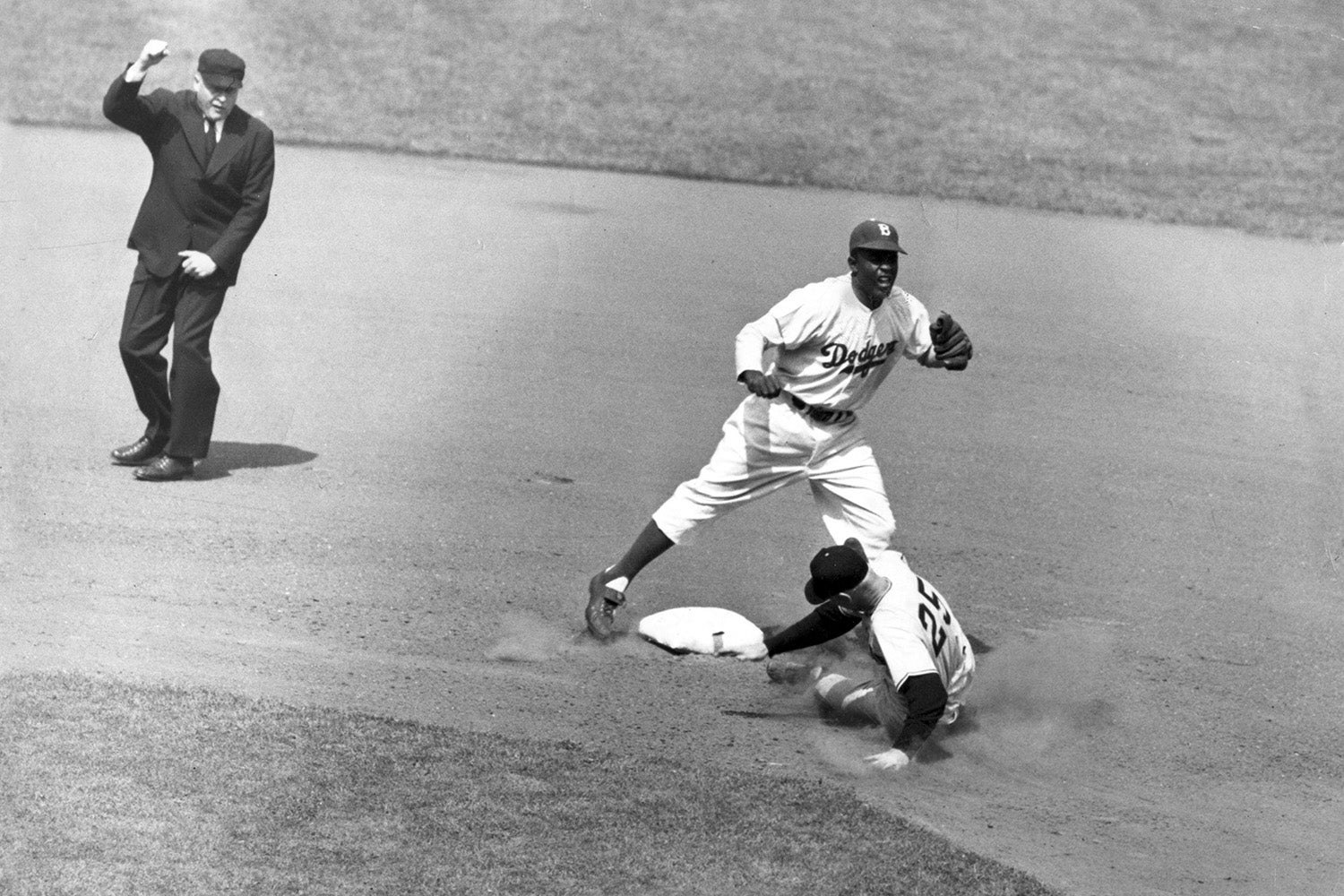
Robinson was at it again three days later, leading Brooklyn to a 6-1 win over Pittsburgh with his first of eight career multi-home run games. He recorded multiple hits in 18 of 28 games in May and was hitting .360 with a 1.014 OPS by month’s end, making a strong case for an All-Star selection.
The Midsummer Classic took place at Ebbets Field on July 12, and the 16th edition was unlike any other. Robinson, teammates Don Newcombe and Roy Campanella and Cleveland’s Larry Doby became the first Black All-Stars in AL/NL history.
“While it was by no means the best contest of the star-studded competition, it will be remembered as a record breaker,” wrote the Chicago Tribune.
The NL committed five errors in a 11-7 loss, but Robinson, making his first of six consecutive All-Star appearances, doubled and scored three runs. Newcombe and Campanella saw action, as did fellow Dodgers Pee Wee Reese, Gil Hodges, Ralph Branca and Preacher Roe.
While Robinson, at .364, led Slaughter (.328) and Musial (.301) at the end of July, his Dodgers trailed their Cardinals by a game and a half — a 15-12 July marked the worst full month of the season for Brooklyn. Remarkably, the clubs matched 20-11 records in August while Robinson’s average dipped slightly to .350.
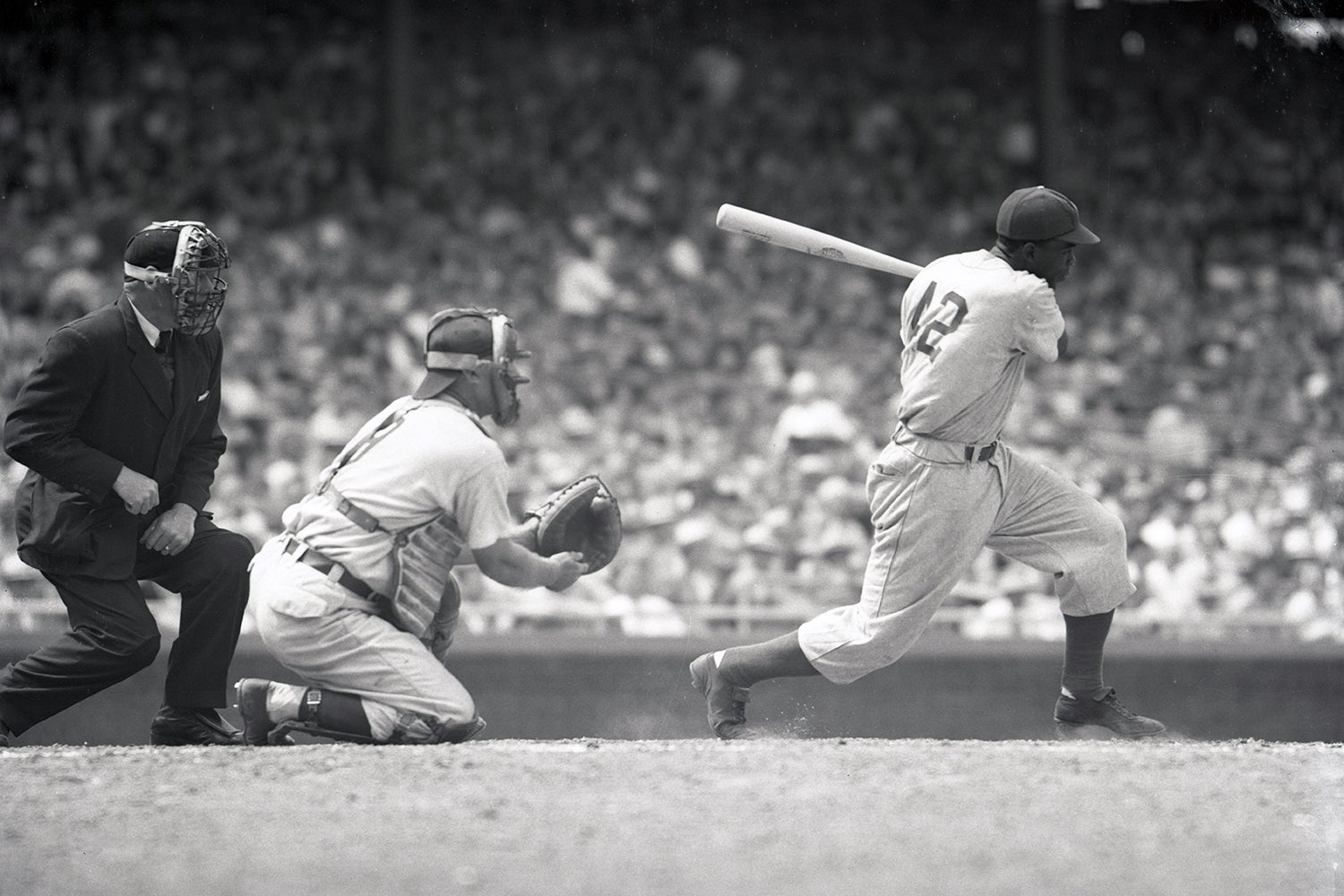
“A guy my age gets tired during the late part of a season,” Robinson would later tell the Daily News. “When games were decided one way or another in the late innings, I wished I could be taken out. My legs felt tired, and the bat felt awfully heavy. I just couldn’t swing right.”
Robinson, 30 years into a life of peerless athletic achievements, may have felt such late-season fatigue but he hardly showed it, hitting .304 over the final 29 games with eight steals, nine extra-base hits and 25 walks. But like the batting race, the fight for the NL pennant came down to the wire. Brooklyn and St. Louis split a Sept. 21 doubleheader, leaving the Dodgers still a game-and-a-half behind the Redbirds.
As he had in May, Robinson took charge the next day and led Brooklyn to a series victory. A 19-6 thumping saw him go 2-for-5 with two walks, two RBI and four runs, helping his Dodgers pull within half a game of the NL lead.
“The Redbirds today licked their wounds and Brooklyn’s battling Dodgers defiantly beat their chests,” wrote the St. Louis Post-Dispatch. “The horrible 19-6 rout last night at Sportsman’s Park before another standing-room-only crowd of 30,765 was the result of a ball game between a club that had to win or else and a team that could wait another day.”
But St. Louis went 3-4 in their remaining games. Brooklyn, meanwhile, won four of six and secured the pennant on Oct. 2 — the season’s final day — with a 10-inning victory over the Phillies. Unsurprisingly, Robinson was at the center of the clincher, reaching base three times and stealing a pair of bags while locking in his batting title. He finished with 203 hits, a .432 on-base percentage and 124 RBI.
The Dodgers returned from Philadelphia to a Penn Station overflowing with fans — the Daily News’ headline read: “Welcome for Dodgers Clogs Station for Hour.” A reporter on the train platform informed Robinson he was the NL batting champion. “That’s fine,” Robinson responded. “But I’m a lot happier about winning the game today!”
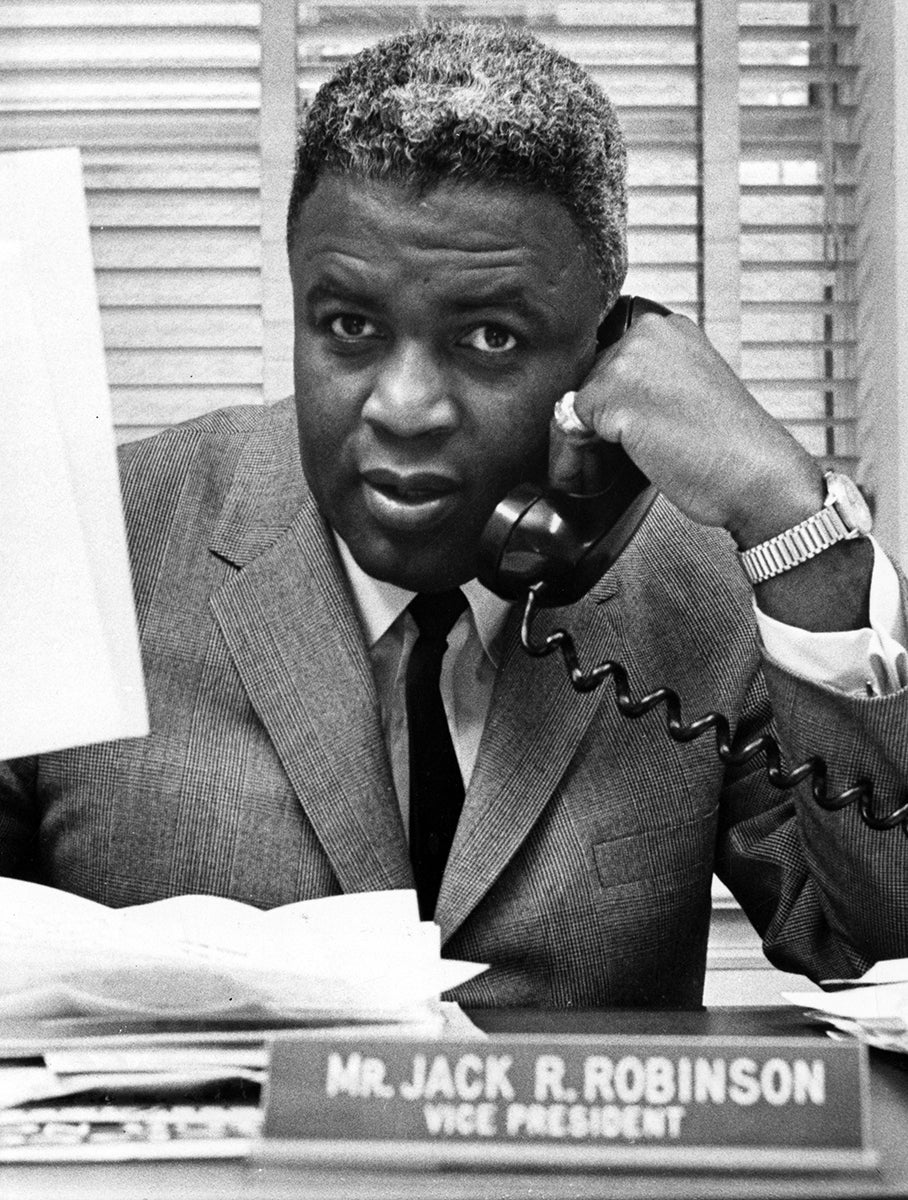
Robinson and the Dodgers suffered a disappointing five-game World Series loss to the Yankees. Still, the individual and team accomplishments made 1949 a historic year for Brooklyn’s second baseman.
“It was quite a thrill to get the news,” Robinson said upon being named MVP on Nov. 18. “In fact, it was my second biggest of the year. The first was the day we clinched the pennant.”
“For Robinson, 30-year-old former U.C.L.A. football star and an army captain in the service, the most valuable player award came as a high point in one of the most highly publicized careers in baseball history,” wrote the United Press. “One of the most fiery competitors in the game today, Robinson played in every one of the Dodgers’ 156 games despite the fact that he was hampered at several periods of the season by arm and leg ailments.”
While the on-field results indicated otherwise, Robinson felt the physical and mental toll of his big league career and was contemplating retiring. He grew tired of the travel throughout a 154-game season and was eager to spend more time with his family. “The strain of the last three or four years have done something to me,” he told the Daily News. “Not that I have anything to worry about, but I’m jumpy and nervous all the time.”
One thing was certain: Robinson refused to play for any team besides the Dodgers. “If I was sold, even this year, I’d quit,” he said. ”My home is here. I’ve made friends here. I’m not going to give all that up.”
Luckily for fans and admirers nationwide, the superstar second baseman at the peak of his game wasn’t quite done with baseball. Robinson would play seven more seasons and receive MVP votes in five of them. He hit .311 from 1950-56, accumulating an additional 97 home runs, 109 steals, 166 doubles and 477 RBI while earning a salary of over $30,000 each year.
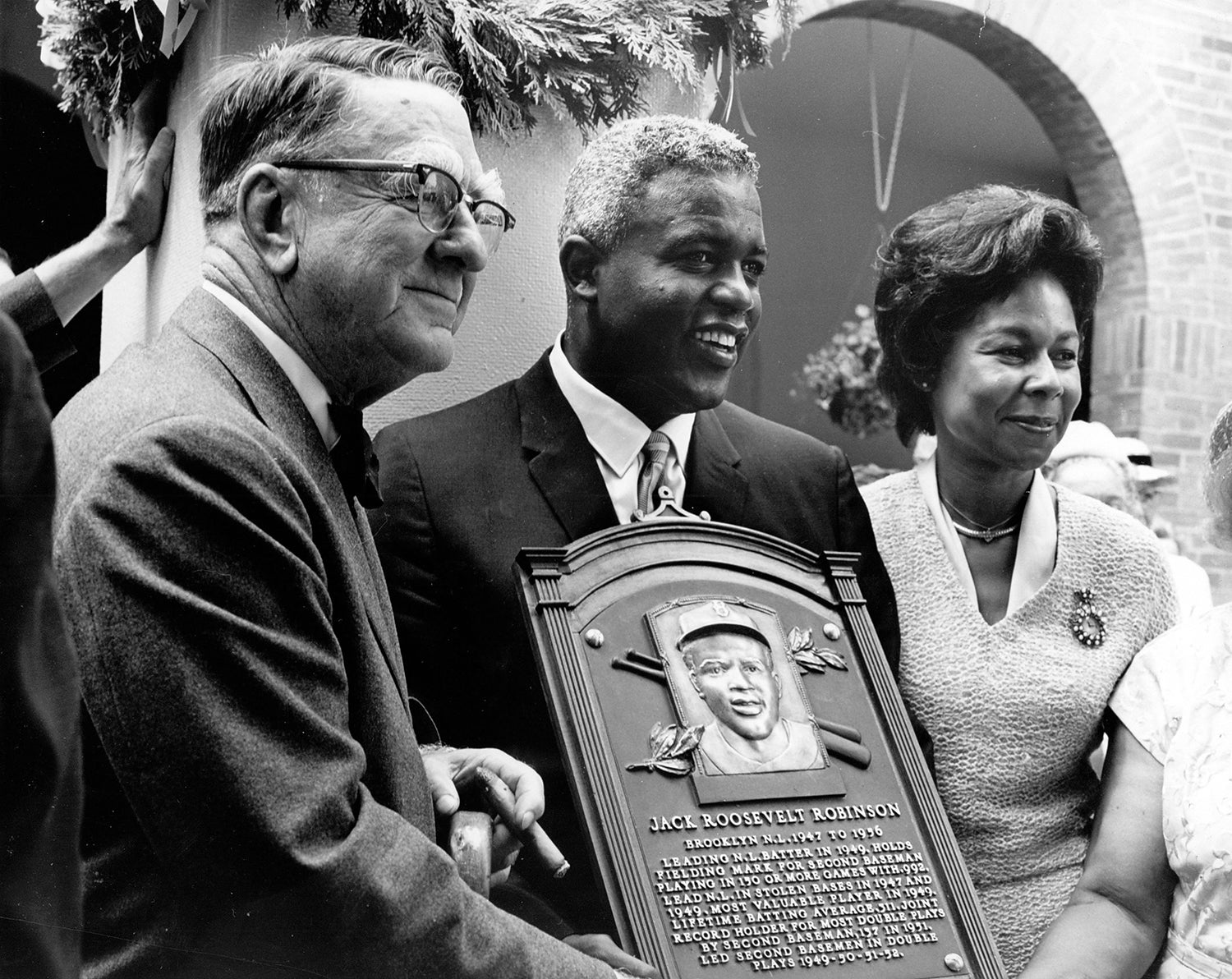
“Baseball has been mighty good to me,” Robinson had said after being named MVP. “And don’t think I’m not grateful. I didn’t have a thing before I got into this game. Neither did my wife. Now we’ve got this home, and we’re putting money away for little Jackie’s education.”
On Dec. 13, 1956 – after 10 seasons where he changed the game on and off the field – the Dodgers traded Robinson to the Giants. True to his word, Robinson retired a few hours later.
Justin Alpert was a digital content specialist at the National Baseball Hall of Fame and Museum


